
This article mainly introduces the magic methods and magic constants in PHP. It has certain reference value. Now I share it with you. Friends in need can refer to it
When instantiating an object, add some parameter lists enclosed in parentheses after the class name (which can be understood as actual parameters of the constructor)
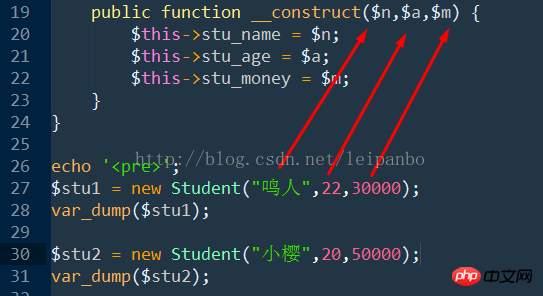
is a pair with the construction method, and the construction method is in an objectIt is automatically called when it is "born", and the destructor method is automatically called by the system when an object "disappears"!
The destructor method is called before the object disappears
Several situations when the object disappears
1, Explicitly use the unset function to destroy a variable
2, After the script is finished running, it will also be automatically destroyed
3, Changing the value of the object variable will also be automatically destroyed
The role of the destructor method
The main function is to release The additional resources occupied by the object! Rather than the object itself!
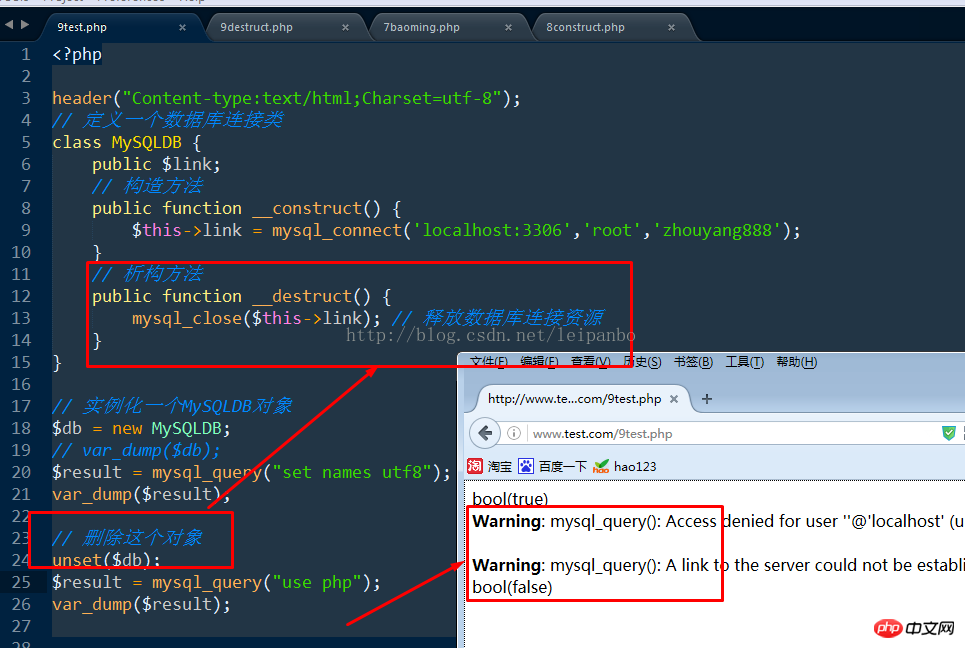
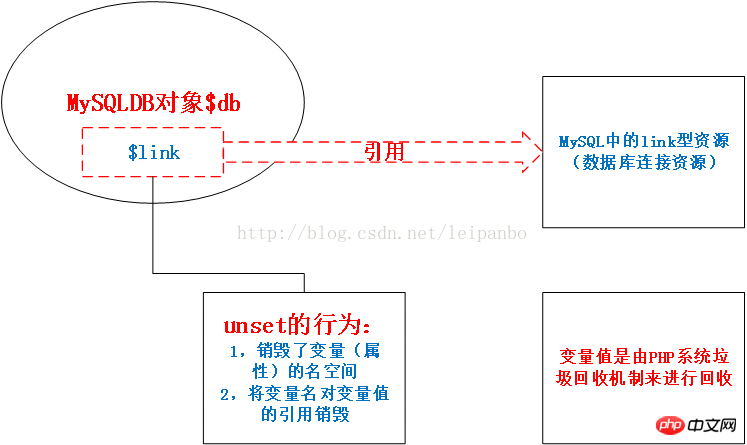
Notice:
#The destructor method usually does not require additional definitions. It only needs to be defined when additional resources (resources that do not belong to this object) are released!
Summarize the characteristics of construction methods and destructor methods:
1, are all preceded by __Begins with
2, is automatically called
3, is only calling the corresponding method when a certain situation occurs
There are many methods in php that satisfy the above three characteristics at the same time, which are called "magic methods"!
Is cloning an object The magic method is automatically called when the object is created! Responsible for initializing the new cloned objects!

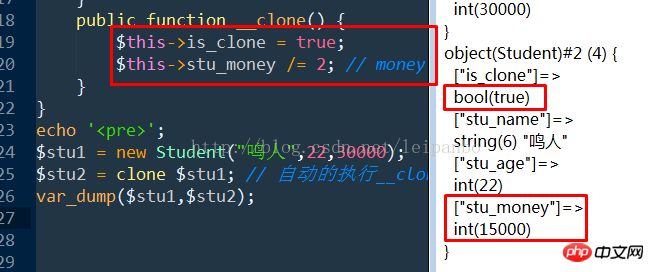
Assign values to properties that are not accessible: __set()
Once the __set() magic method is defined, will be automatically executed when assigns a value to an inaccessible property. In this method, at this time, the processing power is given to the user himself!
This magic method requires two parameters:
One is the attribute name of the inaccessible attribute
One is the value of the inaccessible property
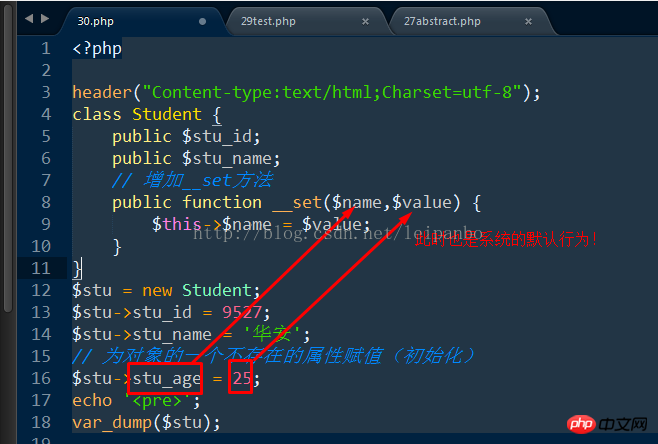
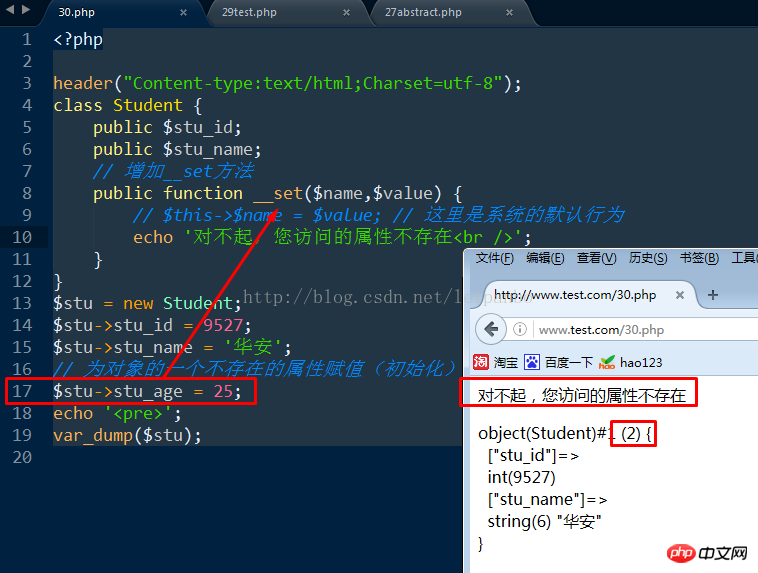
Get the value of an inaccessible property: __get()
Once the __get()magic method is defined,When obtaining the value of an inaccessible attribute, will automatically execute this method. At this time, the processing power is given to the user himself!
This magic method requires only one parameter, which is the attribute name of the attribute!
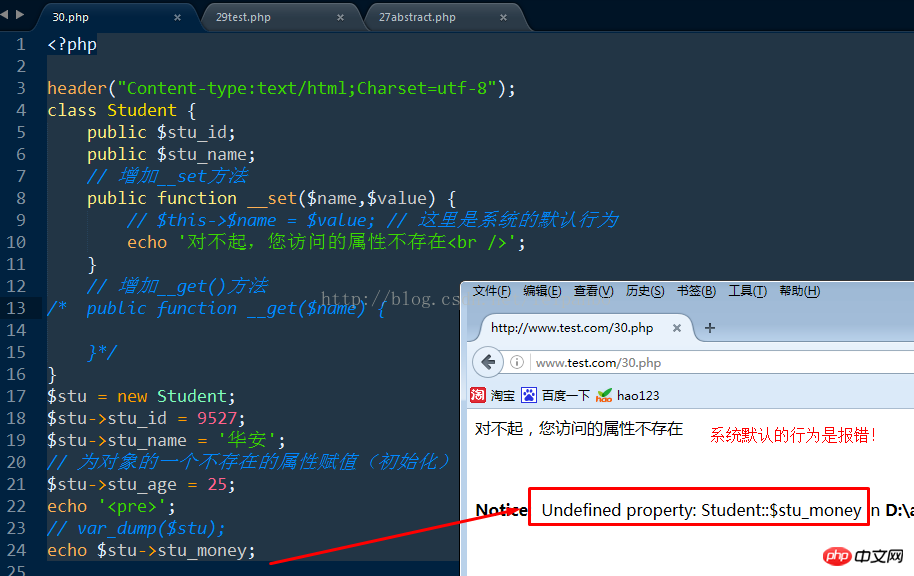
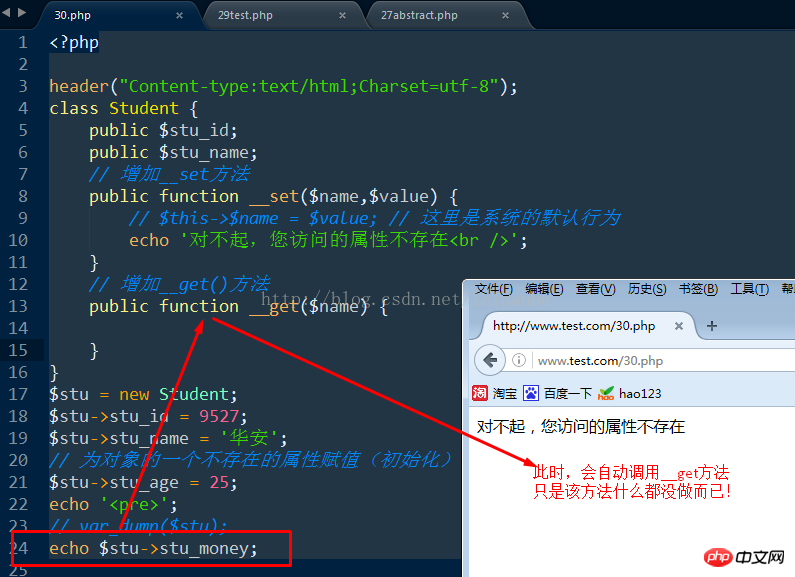
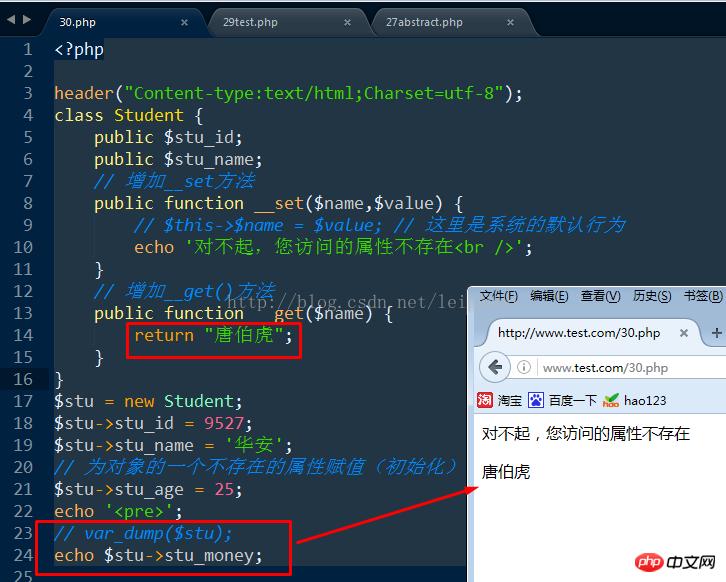
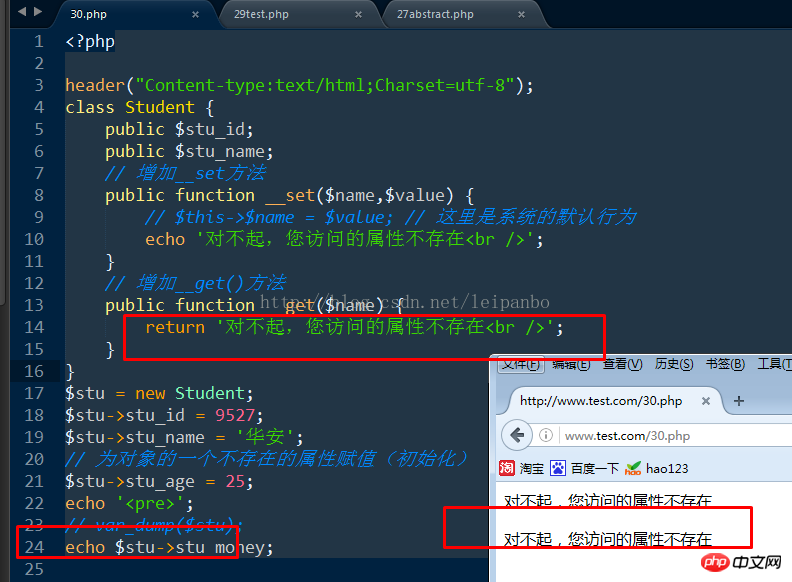
##Note: The two methods
__get and __set are often used in real projects They all appear in pairs! Moreover, these two methods are often used to process the private properties of objects in batches!
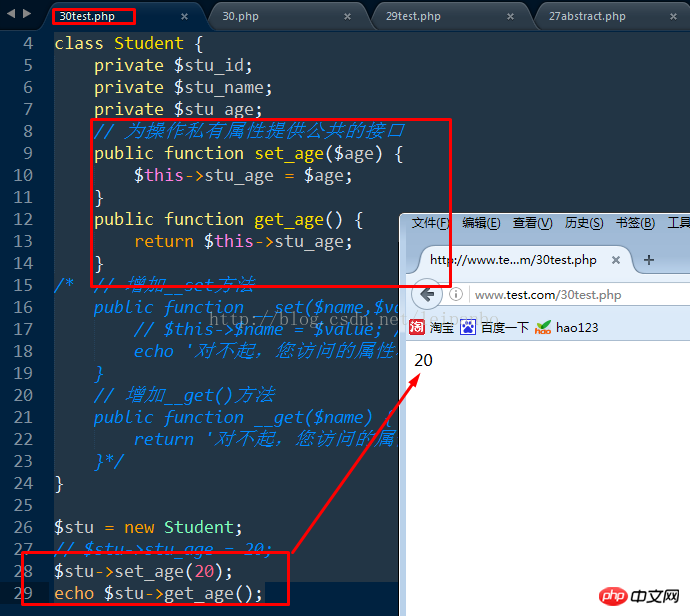
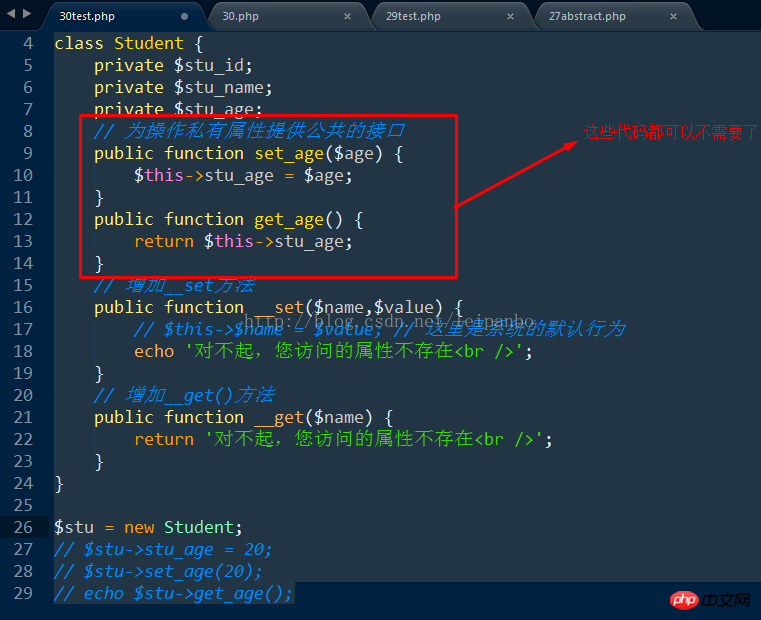
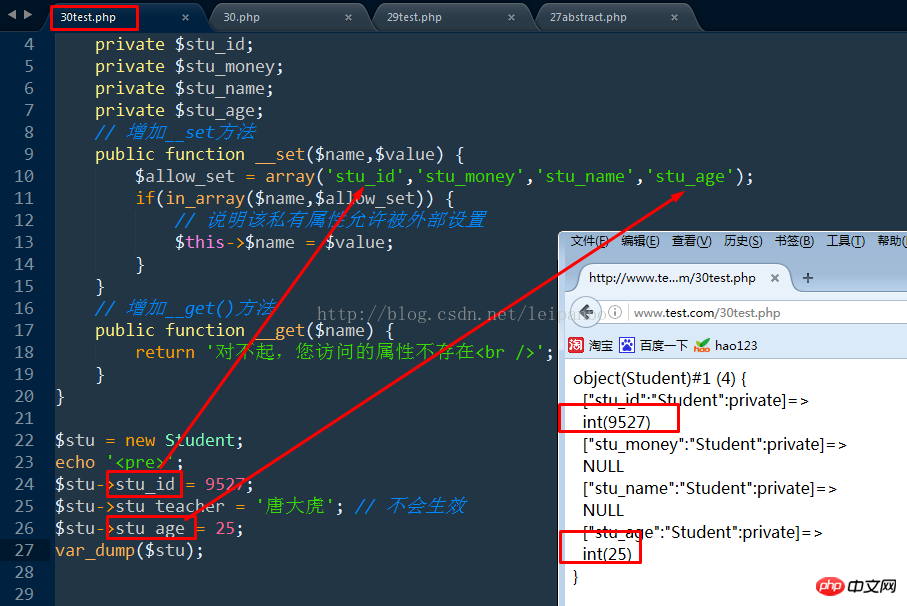
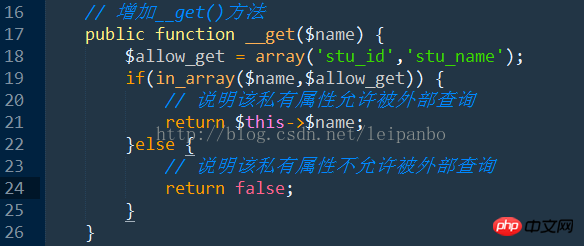
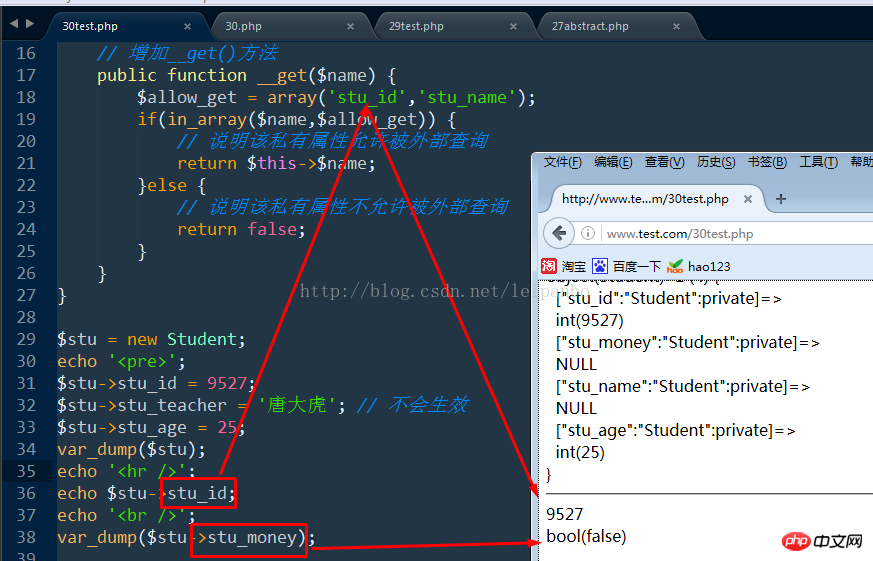
##__unset()
__unset() Generally speaking, you can use the
unsetfunction Delete a public property of the object:
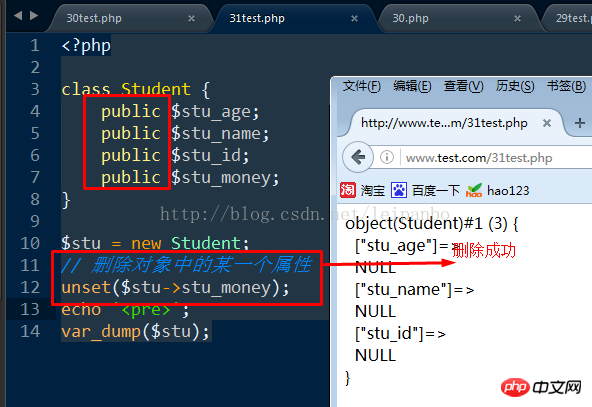 However, if the property is inaccessible (such as
However, if the property is inaccessible (such as
or not exists), the __unset method will be automatically executed. Whether the deletion can be successful depends on the internal implementation of __unset!
This method also only requires one parameter, which is the name of the currently deleted attribute!
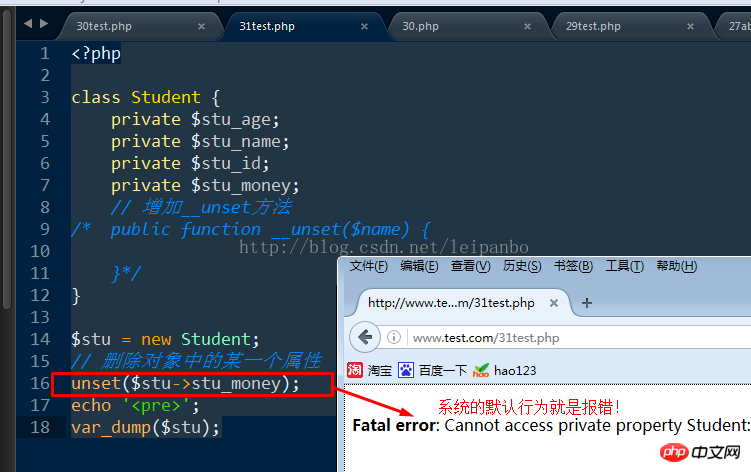
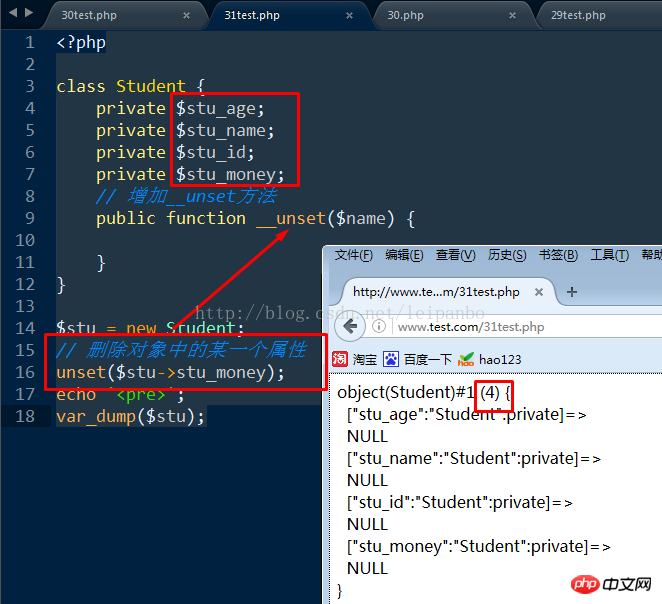
If nothing is done in
, the default is Cannot be deleted (of course no error will be reported!)__isset()
Determine whether the inaccessible attribute exists__isset()If the attribute is an inaccessible attribute, it will be automatically triggered when judging whether the attribute exists. Method execution!
Similarly, this method also requires a parameter, the attribute name that the technology currently needs to determine!
When calling an inaccessible object method (non-static method) Static method), the magic method will be executed automatically!
Thinking:
How many parameters does this magic method need at this time?
Parameter 1: Method name, stringType
Parameter two: array type, because the number of parameters is uncertain, all parameters can only be put into an array
If this method does nothing:
When an inaccessible class method (static method) is called, the magic method will be automatically executed. When defining this method, you need to add static in front of the method name. keyword, because this method should be a static method!
A small case
Design a mathematics class to achieve the following goals:
Calling method f1:
1, If 1 parameters are passed in, return the square value
2, If 2 parameters are passed in, the sum of their squares
3 will be returned, How to pass in 3 parameters, return the sum of their cubes
is accomplished by using method overloading:
When we call the object as a function (or method), the magic method will be automatically executed! Currently it is not very commonly used!
Recall the anonymous function you learned earlier:
Note:
The reason why you can use the $func closure object to successfully call the function is because there is a __invokemagic method# in the closure object.
When we use an object as a string, the imitation will be automatically performed. method!
And the return value of this method can generally be the result of serializing the object into a string!
In fact, the system will automatically trigger the execution of __toString at this time:
represents the current class name!
Note the difference from self:
selfrefers to the class itself ( A structure that includes more than just the class name), and __CLASS__ is just a class name (the class name is just a part of the class!)
represents the current method name!
Several PHP "magic constants" | |
Name |
Description |
| The current line number in the file. | |
The full path and file name of the file. If used within an included file, returns the name of the included file. |
|
__DIR__ |
The directory where the file is located. If used within an included file, returns the directory where the included file is located. It is equivalent to dirname(__FILE__). Directory names do not include the trailing slash unless they are the root directory. |
__FUNCTION__ |
Function name. This constant returns the name of the function when it was defined (case-sensitive). |
__CLASS__ |
The name of the class. This constant returns the name when the class was defined (case-sensitive) . Note that since PHP 5.4 __CLASS__ also works for traits. When used within a trait method, __CLASS__ is the name of the class that calls the trait method. |
__TRAIT__ |
The name of the Trait. Since PHP 5.4 this constant returns the name of the trait as it was defined (case-sensitive). The trait name includes the scope in which it is declared (e.g. Foo\Bar). |
__METHOD__ |
The method name of the class (newly added in PHP 5.0.0). Returns the name of the method as it was defined (case-sensitive). |
__NAMESPACE__ |
The name of the current namespace (case sensitive). |
The above is the detailed content of Magic methods and magic constants in PHP. For more information, please follow other related articles on the PHP Chinese website!




